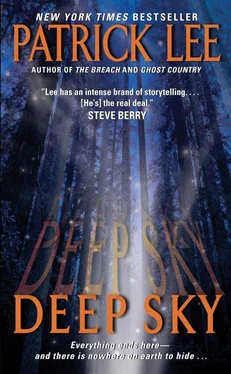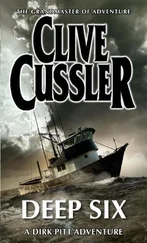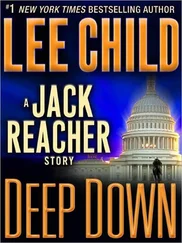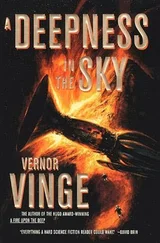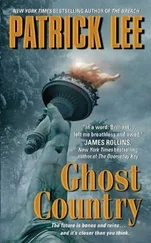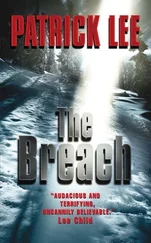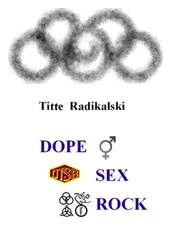“Jesus Christ,” Travis said. He heard a tremor in his own voice.
“Every one of our simulations showed that a century like that would be enough—would let us get the world on the right track forever. Like a cast for a shattered bone.”
“Aren’t there easier ways?” Travis said. “If you’re taking that computer to Earth in 2016, can’t you just ask it, once you’re there, for a more benign approach? There has to be something else it could think of.”
“There’s no end to what it can think of, and many of the alternate ideas would work—but all of them carry even higher death tolls than this one. However you go about it, you’re talking about changing the world. It just doesn’t happen without conflict. Believe me, we’ve had time to consider every approach, and the filter is the benign one. We’re lucky the numbers aren’t worse.”
“Twenty million people,” Travis said. He went silent, listening to his pulse thudding in his ears. Then he said, “How is it even possible to kill them all?”
“That’s the function we developed for the computer, taking advantage of how it works: interaction with material at a distance—a whole planet’s worth.”
“Only at the smallest scale,” Travis said. “Elementary particles. Not even atoms. Quarks.”
“With the right programming it can do a bit more than that. I told you, it took us forever to set it up. We borrowed a few tricks from the evolution of parasite signals—ways of moving lots of particles all at once.”
“To do what?”
“Create simple vibration, mostly—to generate heat. A little point-source of it, about a thousand degrees Celsius, anywhere in the world we choose. Inside someone’s brainstem, for example.”
Garner saw Travis’s expression and continued quickly: “It’s painless. They don’t even know they’re dying. They just drop where they stand.”
“All twenty million,” Travis said.
“In perfect unison.”
A long silence drew out. Travis stared at Garner, then looked away at nothing. He could feel his heartbeat in his chest now. It sounded like drumming in some vast, empty place.
“You see now why your role is central to this thing,” Garner said. “It’s your decision whether we come through the channel at all. If you do let us through, we’re going to trigger the filter the moment we arrive. I tell you that for clarity’s sake.”
“You didn’t have to tell me at all,” Travis said. “You could’ve given me the card and sent me back unaware.”
“We debated that. Even voted on it. The outcome was pretty close to unanimous. The way we see it, the Earth at the far end of that tunnel isn’t strictly our world. We had ours, and we lost it. The world we’d be coming to is yours . We couldn’t ask you to let us in without knowing the consequences. We believed at least one of you should have the option to veto the idea. I’m sorry it falls to you, Travis. I really am.”
Travis thought to ask why it did fall to him. Of all the people on Earth in 2016 who had counterparts aboard this ship, there could hardly be a riskier bet to put all the chips on. A young adulthood spent among violent criminals. His own criminal actions and all their consequences. He’d been lucky to reach his forties at all.
But he didn’t ask the question. After a second’s thought he didn’t need to. He recalled the wooded slope outside the mine shaft. The contractors crouched behind their Humvees. The near-total lack of emotion he’d felt, approaching them with the chef’s knife.
Necessity pushing remorse aside.
An animal thing from way back.
Something he maybe had more of than he should.
Garner’s eyes took on understanding; he could see that Travis had made the connection for himself.
“You’re the guy if anyone is,” Garner said. He was quiet a beat. Then: “I’ve said all that it makes sense to say. Go back, and take all the time you need. If you never want this to happen, it never will.”
He held Travis’s gaze a few seconds longer, then gave him a last nod and walked away, back through the doorway he’d come from.
Travis stared after him, then looked down through the glass floor again. He watched until the yellow speck of Earth’s sun emerged once more into the frame.
I really can’t get there , he’d said to Paige. Keeping you in the dark about anything at all—I can’t imagine it.
He still couldn’t. Not in this or any timeline. He could imagine nothing other than going back and immediately telling Paige every detail. Garner and a few others, too, but Paige first. He would share everything with her except the weight of making the choice. That would be his alone. He could spare her even the stress of trying to sway him one way or the other, by simply leaving for a while. Going off by himself, maybe for weeks. Or months. Or years. Just thinking it all through, the card folded in his pocket at all times. He could use it from anywhere on Earth, as soon as he made up his mind.
He thought he knew which side of the choice he’d eventually come down on.
He imagined Paige would know too.
He thought about all that, and five seconds later he understood everything: all that’d transpired between the future versions of himself and Paige. Why she’d sent her message. Why he’d sent his. There’d been no misunderstanding at all.
He stared at the distant sun transiting the glass beneath his feet, and wondered if it was possible to feel emptier or more numb than this.
He patted the card, deep and secure in his pocket, and turned to the tunnel’s flared entry. He crossed to it and slipped inside, and began to push himself back toward home.
This last volume of the trilogy came to life with a lot of help from very smart and dedicated people. Great thanks to my editor, Gabe Robinson, along with many, many other people at HarperCollins, including Liate Stehlik, Seale Ballenger, Pamela Spengler-Jaffee, Megan Swartz, Adrienne Di Pietro, Kristine Macrides, and Danielle Bartlett. Thanks also to Ellen S. Leach, for catching a large number of mistakes that slipped past me but would not have slipped past readers.
And as always, thank you to Janet Reid, agent extraordinaire. Before writing books I knew there was more to this job than sitting down and typing, but I couldn’t have guessed how much more—and the incredible work you do is the reason I can do my part at all.
PATRICK LEE lives in Michigan. He is the author of The Breach , Ghost Country , and Deep Sky .
To find out more, please visit www.patrickleefiction.com.
Visit www.AuthorTracker.com for exclusive information on your favorite HarperCollins authors.
By Patrick Lee
Deep Sky
Ghost Country
The Breach

This is a work of fiction. Names, characters, places, and incidents are products of the author’s imagination or are used fictitiously and are not to be construed as real. Any resemblance to actual events, locales, organizations, or persons, living or dead, is entirely coincidental.
DEEP SKY. Copyright © 2012 by Patrick Lee. All rights reserved under International and Pan-American Copyright Conventions. By payment of the required fees, you have been granted the nonexclusive, nontransferable right to access and read the text of this e-book on screen. No part of this text may be reproduced, transmitted, downloaded, decompiled, reverse-engineered, or stored in or introduced into any information storage and retrieval system, in any form or by any means, whether electronic or mechanical, now known or hereinafter invented, without the express written permission of HarperCollins e-books.
Читать дальше
